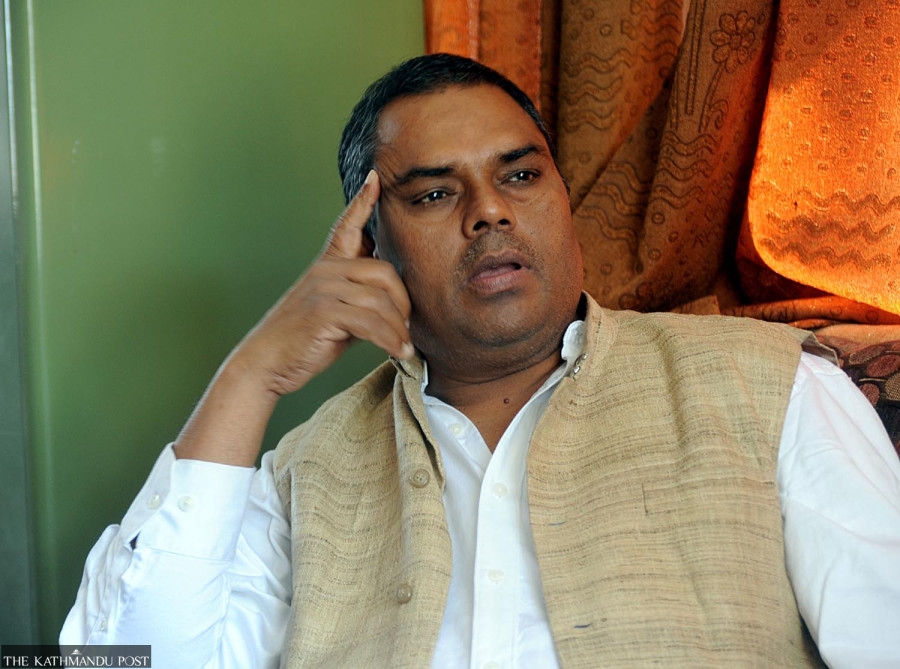Politics
Vice President: Will Yadav favour women, minority?
Janata Samajbadi chair has the chance to recommend one but insiders say he may trade the post for his own MP bid.
Tika R Pradhan
As the country is all set to elect a new President on March 9, people are also curious about the next Vice President to be elected through an election slated for March 17.
With the nominations of Ram Chandra Paudel of Nepali Congress (as a common candidate of the eight-party alliance) and Subas Nembang of the CPN-UML, one of them is certain to be the country’s next President.
Given the strength of the eight-party alliance in Parliament, where a total of 12 parties are represented, Paudel appears all set to get elected as President, although UML’s Nembang is also trying his best to make it to the coveted post.
In the sharing of key positions among the eight parties of the coalition, the Janata Samajbadi Party has got a chance to field its candidate for Vice President.
With the constitution making it mandatory to elect the President and Vice President from different genders or communities, the Madhes-based party has a good opportunity to elect someone from deprived communities or a woman to the key state post.
Observers say JSP chair Upendra Yadav, who spearheaded a Madhesh movement in 2007, is in a position to show magnanimity and promote a leader of any Madhesi minority group or a female leader to the position of Vice President.
However, according to party insiders, Yadav is working to turn the situation in his personal favour. Sources said he wants to pave the way for his reentry into the Parliament despite losing the general election against Janamat Party chair CK Raut in Saptari-2 last November.
Chairman Yadav is the only party chief in the newly formed eight-party alliance who was defeated in the latest general election.
“Developments in the JSP suggest party chair Yadav’s only focus is to enter Parliament by making his lawmaker Ram Sahay Yadav Vice President,” said Chandra Kishore, a political analyst, who follows Madhesh politics. “He has also succeeded in securing the position of Vice President for his party from the ruling alliance.”
Yadav was defeated with more than 18,000 votes from Saptari-2 constituency in the general elections three and a half months ago. He had lost to Raut, who won the polls with 35,042 votes.
According to leaders of the ruling coalition, they have agreed to allocate the post of Vice President to the JSP with the intention of bringing Yadav back into the House of Representatives.
Party insiders said Ram Sahay Prasad Yadav, who was elected from Bara-2 defeating the CPN (Maoist Centre)’s candidate, has vowed to abide by the party’s decision.
“Though the party has not taken any decision regarding its candidate for Vice President, as things stand, Ram Sahay is a potential candidate,” said Rajkishor Yadav, a senior party leader and lawmaker.
He said the need for the party chair to join the parliament has been felt not only in the party but also in the coalition, and informal discussions on the issue have started.
“As there is still time for the election of the Vice President, we will start formal discussions in a few days,” Rajkishor Yadav said. “Our chairman has told us that a decision will be taken in a way so as to safeguard the achievements of the political changes in the country.”
Chairman Yadav had earlier promoted Ram Sahay to the post of the JSP parliamentary party leader, sidelining another senior leader Ashok Rai, who was elected from Sunsari-1. This is also seen as Yadav’s calculated move, and reflective of his desire to lead the JSP’s parliamentary party in the event of his getting elected from Bara in the by-election. Once elected, the President and Vice-President have to resign from their parliamentary seats and when the seats go vacant the Election Commission will hold a by-election there.
Another party leader said there have also been discussions that the party should send someone from deprived communities to the post of the Vice President.
“But the party chair won’t stand for it,” said a leader asking not to be named. “It will be easier for the party chair to enter Parliament from Bara-2 as the ruling coalition will join hands in the by-election to ensure his victory.”
Although the JSP leaders argue that Chairman Yadav has good reasons to join the House of Representatives, political observers accuse him of showing a lust for power.
“Yadav has a great opportunity to show his generosity by nominating someone from Madhesi Dalit or Tharu communities for Vice President,” said Chandra Kishore. “Although it is not illegal for a candidate who had lost the polls in November by a huge margin to contest a by-poll, it cannot be considered politically and morally right.”
He questioned Yadav’s contributions during his repeated parliamentary terms, and what difference he could make by becoming a lawmaker again.
In the first Constituent Assembly, Madhav Nepal was defeated in both the constituencies he had contested, but later he was nominated to Parliament under proportional representation system—and even managed to become prime minister.
Although parties at the time had argued that Nepal’s presence in the Constituent Assembly was a must to produce a constitution, he could not even save the first Constituent Assembly let alone help produce a constitution.
“No leader is indispensable,not even Uprenda Yadav,” Kishore told the Post. “Therefore, this time the JSP should better seek someone from deprived communities instead of quietly supporting the party chair’s inappropriate ambition.”
The country’s first President Ram Baran Yadav and Vice President Parmananda Jha were from the Madheshi community. The second president, incumbent Bidya Devi Bhandari and Vice President Nanda Bahadur Pun, are both from hill communities.




 8.79°C Kathmandu
8.79°C Kathmandu














